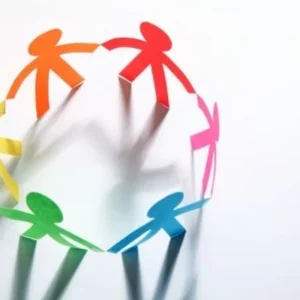In Brčko District, the short film Igra (The Game), produced by the civil society organization Forum with UNDP support, has been making a powerful impact. Addressing the dangers of small arms and light weapons, it has been screened in nearly 200 schools across eight cantons and Brčko District, reaching over 13,000 students. The project reflects a strong collaboration between youth, police agencies, and local authorities, fostering awareness and dialogue on safety.
In Gradačac, young people are taking part in shaping local policy by drafting the city’s first-ever Youth Strategy. Through workshops supported by Sweden and the Government of Switzerland via UNDP’s “Strengthening the Role of Local Communities” project, they have analysed data, debated priorities, and proposed measures in education, employment, culture, health, and safety. Their recommendations will guide official policies for years, demonstrating the value of youth involvement in democratic decision-making.
In Mostar, youth leaders joined ministers, diplomats, and cultural figures at the Dialogue for the Future 3 conference to sign the Mostar Youth Declaration 2025. Their commitments include protecting heritage, promoting peace, fostering cross-border education, and strengthening youth engagement in diplomacy. The event, supported by multiple national and international partners, underscored the role of young people as guardians of the shared future.
In Tuzla, the association Vive žene facilitated intergenerational workshops where survivors of war shared their experiences with young people, supported by the EU’s confidence-building initiative in the Western Balkans. This exchange fostered understanding, respect, and a shared commitment to justice, bridging generations through memory and dialogue.
Technological innovation is also shaping the country’s future. Through the Schools of the Future programme, funded by the Government of Norway via UNDP’s EGG2 project, over 500 students and 70 teachers from 29 schools have explored robotics, 3D design, and programming. The initiative has empowered many girls to enter STEM fields, challenging gender stereotypes and nurturing creativity.
In the water sector, young professionals from 30 partner communities are leading change through subcommittees within entity-level water associations. Supported by the MEG2 project, they are developing solutions, exchanging expertise, and preparing to launch a Water Academy to train the next generation of engineers. Other youth-led efforts, from climate advocacy ahead of COP29 to the School of Green Chemistry, highlight innovative approaches to sustainability, such as using lemon peels to clean polluted water.
As Bosnia and Herzegovina marks International Youth Day 2025 under the theme Local Youth Actions for the SDGs and Beyond, these initiatives reflect a generation that is coding, debating, remembering, inventing, and connecting. Through strong partnerships between domestic and international institutions, youth are not just participating—they are leading the creation of an inclusive, peaceful, and sustainable future.







